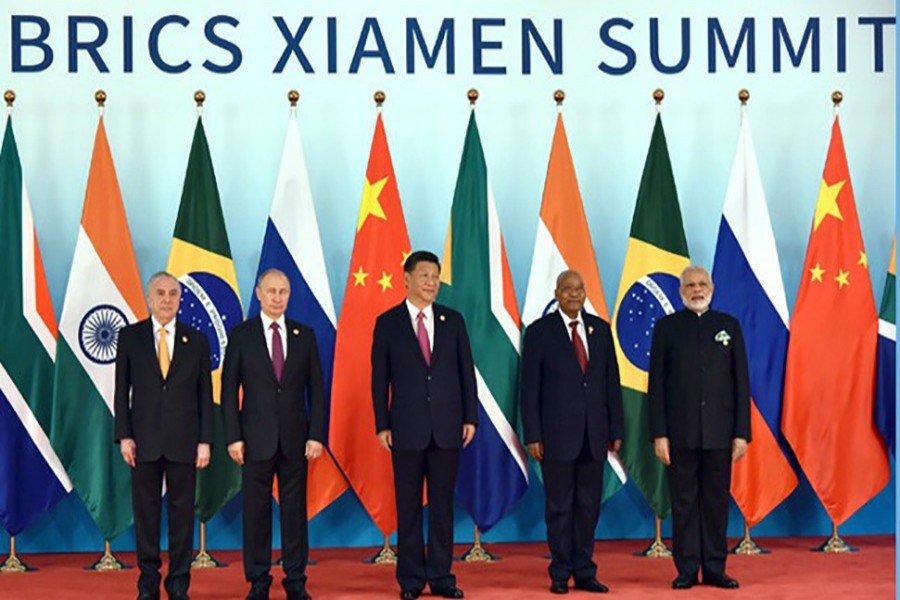A three-day long BRICS Summit came to an end on Tuesday reaching consensus on some key economic issues that leaders believe will make voices of the developing countries much stronger in the globalised world.
Besides talking about socio-economic problems and prospects of the BRICS (Brazil, Russia, India, China and South Africa) countries, the leaders also discussed about the pains the emerging markets are facing.
On the last day of the annual meet of the five major developing economies, China pledged US$ 500 million for South-South cooperation which experts believe will benefit countries like Bangladesh.
While speaking at the Dialogue of Emerging Markets and Developing Countries on the last day of the summit at Xiamen International Conference and Exhibition Center, Chinese President Xi Jinping made the financial offer for the emerging markets.
"The money will be used to help fellow developing countries tackle famine, refugee crisis, climate change, public health and other challenges," he said.
He said the BRICS countries need to promote greater representation of developing countries in global economic governance, and foster an international economic order that is fairer and more equitable.
Mr. Xi said the emerging markets and developing countries have contributed more to global economic growth than others, accounting for 80 per cent of global growth in 2016, which is the primary engine of the world economy.
Addressing the leaders, Mr Xi called upon the developing countries to seize the opportunity arising from the adjustment of the world economic structure.
China, this year, invited five other countries from different regions -- Egypt, Guinea, Mexico, Tajikistan and Thailand and leaders of these countries were present in the dialogue.
During the meeting, the BRICS leaders reached consensus on key economic areas like formation of common task force for e-commerce, e-port and creation of separate rating agency, which they think would make a significant contribution to the bloc's economic growth in the coming years.
At the summit, Vice-Minister for the Ministry of Commerce of China Wang Shouwen said share of the BRICS nations in global e-commerce industry is quite large because transnational trade volume was over US$90 billion last year and it is growing gradually.
He said the bloc recognised the significance of e-commerce as the BRICS potential and the members agreed on jointly implementing E-commerce Cooperation Initiative, which will help the alliance detect problems the countries face and solve those through research and innovation.
He also said the countries also agreed on creation of common framework for the concept of e-port through which the members will share best practices and problems as well as resolve barriers through holding regular dialogues among themselves.
When contacted, Professor of International Affairs of Renmin University of China Wang Yiwei said the US$500 million South-South Cooperation Fund is very important for the BRICS to be the link with the 12 countries and emerging economies, including Bangladesh, which are suffering in many ways because of fund shortage.
He said the issue of climate change, coupled with other factors, heavily impacted infrastructure in those countries and structural reforms towards achieving sustainable developed becomes a serious challenge for them.
"So, I think the fund will help them achieve the 17 SDGs (Sustainable Development Goals) set by the United Nations," he said.
About the rating agency, the Professor said the rating agencies, mostly led by the United States, troubled many developing economies through their poor rating after the global financial downturn in 2008.
"We (BRICS nations) should for credible rating system to attract investors and regain confidence of the businesses. I think a separate rating agency will help the nations to this effect," he added.


